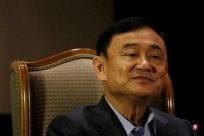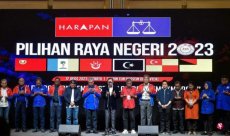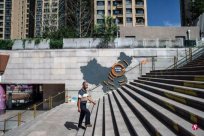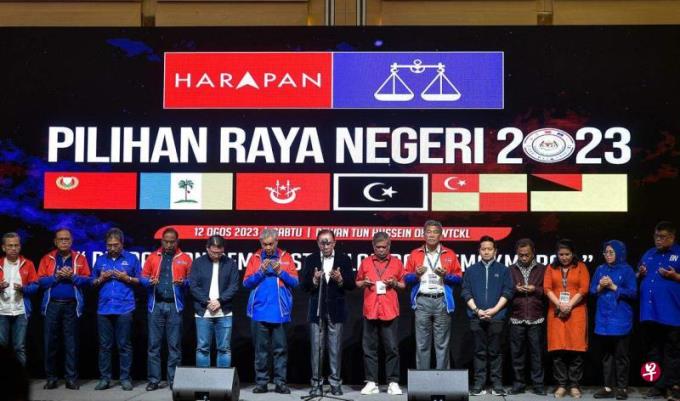
Six Malaysian states held the State Parliament , although the Penang, Selangor, and Semimilan State regime in the Hope Alliance and the National Front of the Central Governance of the Central Committee have lost multiple traditional seats.Among them, in the three sessions of the Pakatan Harapan, the Pakatan Harapan and Barisan Nasional have lost two -thirds of advantages.
The national alliance in the wild continued the momentum of the national election last November. In addition to the victory in the original Geedo, Jilandan and Dengjialou, it also successfully expanded its influence in other three states.Among the 245 seats in Liuzhou, the National League swept 146 seats, and the Pakatan Harapan and BN only won 79 seats.
The Pakatan Harapan blame the "green tide" on the incitement of the Islamic Party's conservative religious forces.However, analysis refers to the pusher of the Malay people's dissatisfaction with the current status of the economy and the loss of UMNO.
Singapore's senior researcher at the East Isa East South Asian Research Institute and Director of Malaysia, Francis Hutchinson, believes that the positioning and propaganda strategies of the national alliance in elections have a bonus role.
The results of the recent polls of young people in Malaysia have shown that religion accounts for increasingly important positions in the identity of the Malays; in addition, young people are also paying attention to issues such as anti -corruption and good governance.Harchinson told the United Morning Post: "Is the national alliance better to maintain the values such as anti -corruption than opponents. It is yet to be discussed. However, the national alliance can indeed seize these topics and perform effective packaging. They are also good at using social media forPropaganda, especially attracting the support of young people through Tiktok. "
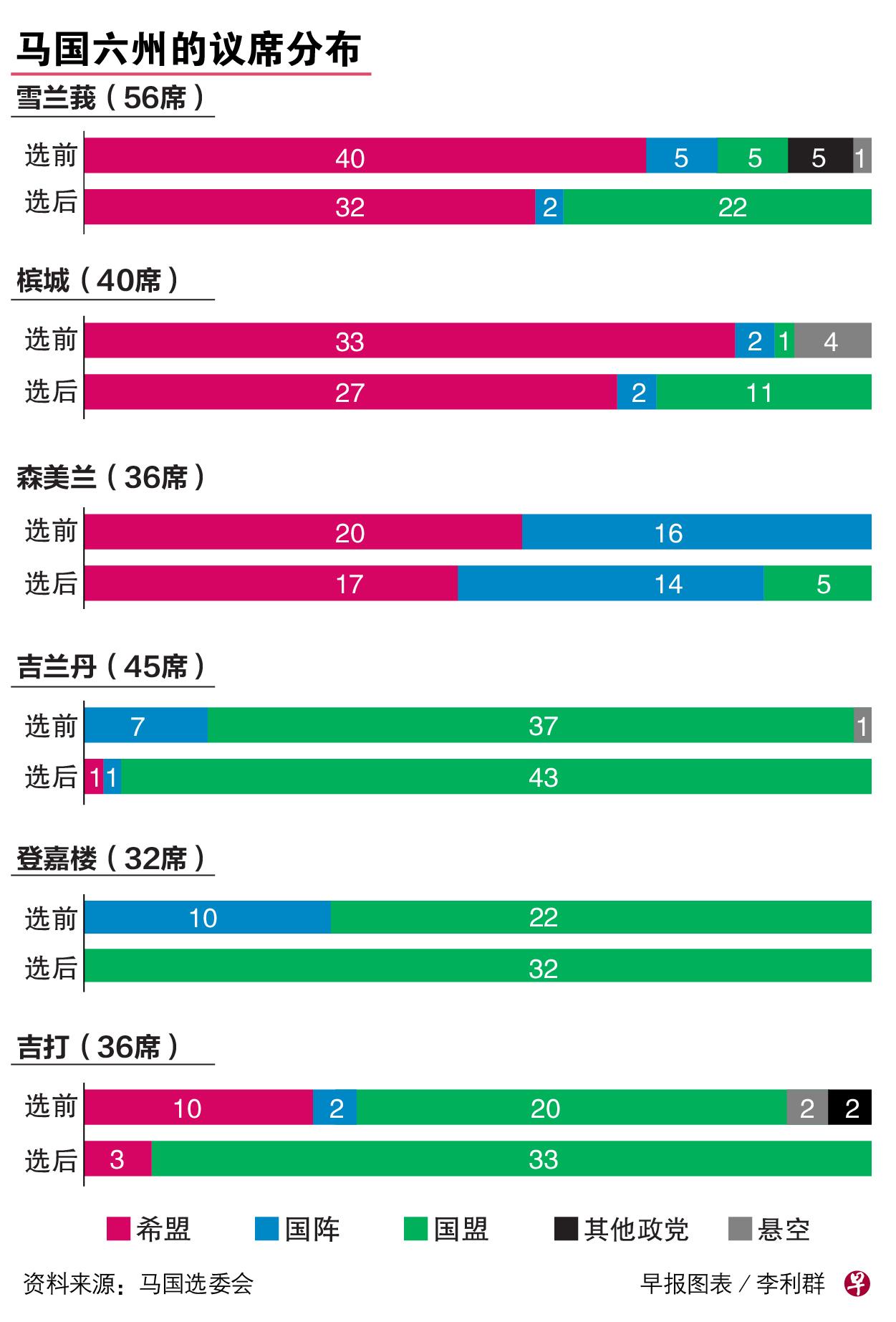
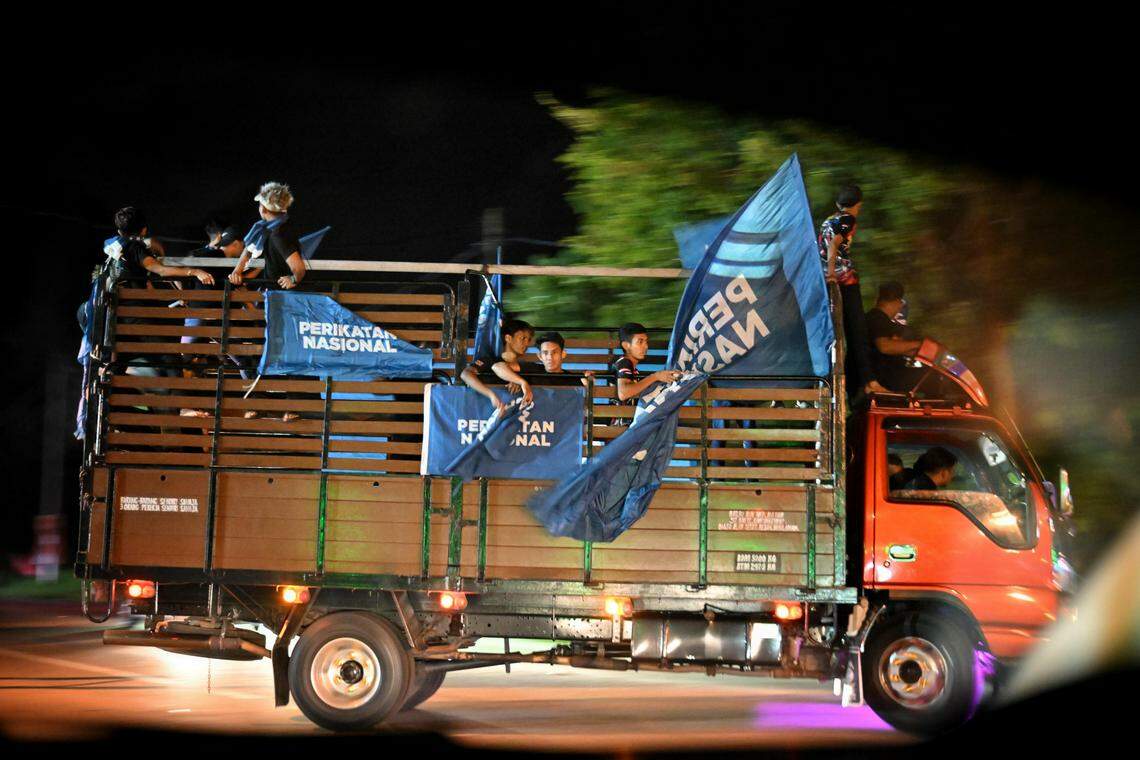
Analysis believes that the results of the elections in the six states highlight that most of the voters in Malaysia still take race and religion as a consideration.The Malay people chose to support the Pakatan Harapan and Barisan Nasional due to their fear of "green tide" out of their economic and political status.
Huang Jinfa, a political scholar of Malaysia, analyzed the United Zaobao of the United Zard that as the Barisan Nasional government fell in the 2018 election, Malaysia politics entered the two -tier system, on the one side is the Pakatan Harapan that advocates diversified, and on the other side is Malaysia.The National Alliance, which is mainly from people."The six states elections this time are placed in front of voters, while the latter seems to be more popular with most ethnic groups."
The DPP's successful winner has caused polarization of society
It is worth noting that the Iraqi Party and the Democratic Action Party is the party that has won the most seats in the Chao -and -Japan camp, respectively.The Iraqi Party competed for 127 seats in Liuzhou and won 106 seats.
The Iraqi Party has always advocated to promote conservatively for the Muslim and respect the goals of the Pediste State;Today, these two concepts are very different, and they have become the first choice of political parties for Malays and Chinese, which has aroused concerns about the society.
Azmil Mohd Tayeb told Lianhe Zaobao that this is a worrying phenomenon, because Malay and Chinese are politically moving towards both ends, and they may deepen each other's misunderstandings.And differences.
In addition, because the supporters of the two camps are obviously composed of different ethnic groups, more racial and religious discussions may occur from Malaysia politics next to further deviate from the middle line.
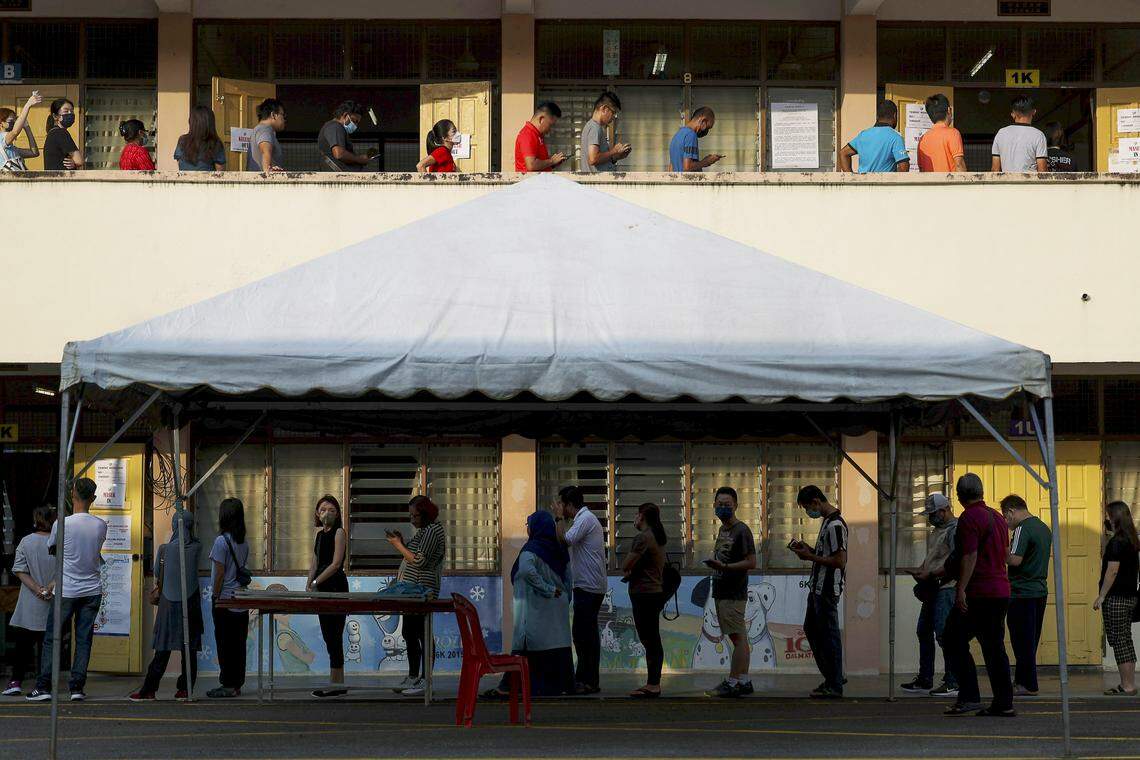
Current affairs commentator Wang Weixing said in an interview that in general elections, the proportion of middle voters accounted for 40 % to 50 %. Once the two polarization occurs, more and more intermediate voters will be pushed to both ends.
Wang Weixing is also the CEO of Kuala Lumpur and Selangor's Hall of China.He said that the situation of polarization of politics occurred in many countries, such as the competition between the Republican and Democratic Party of the United States."However, if Malaysian politics has polarization, the contradictions and differences between each other will become more acute, because Malaysia politics is often distinguished by race and religion."
In the past few decades, Malaysia politics has been swaying between diversified and racial routes.Since Anhua in politics, there has been a significant change in political stance.
When Anwar was young, he participated in the Muslim Youth Movement. During his tenure as the Minister of Education in the 1980s, he vigorously promoted Muslimalization of Malaysia's education system.In the 1990s, Anwar launched a number of reform solutions after Umno and the government consolidated forces to embrace pluralism.
During the imprisonment of Anhua, his supporters also established a multi -ethnic party, the People's Justice Party.
But in the face of the "green tide" set off by the National Alliance, Anwar actively shaped the image of Malay leaders after taking office.Anhua not only prayed to different aspects every week, but also wore traditional Malay clothing abroad to visit abroad, in order to highlight his Malay identity.
Anhua has also launched a series of preferential measures for Malays since eight months, including requiring that the national rice company has put profits to the country's rice farmers and the debt of cancellation of colonial colonial.
Anwar protruding Muslim image Malay voters do not buy it
However, although Anwar made various efforts to fight for Malaysian votes, many Malays were doubtful to him.
Hisomuddin Bakar, executive director of Ilham Center, said in an interview with Lianhe Morning Post: "Some traditional Malay people see Anhua Liberal Liberty. They think that Anwar does doneEverything has political purposes. From the results of the elections in the six states, it can be seen that the efforts of Anhua's protruding image of Israel have not had a significant impact on Malay votes. "
According to the polls released on the eve of the Qiansi Center, the overall satisfaction of the Liuzhou voters to Anwar is 42 %.However, only 24 % of Malay voters are satisfied with Anwar. The Chinese are 88 %, Indians are 81 %, and 75 % of other races.
Analysis believes that in order to break through the bottleneck of Malaysian votes, the Anwar and the united government may have to make a choice between the diverse or racist routes.
In fact, the open multi -route has faced a lot of resistance in Malaysia for many years.As early as the independence of Malaysia, the UMNO Creator Weng Yahua had to open the party to all ethnic groupsOppose, the result of withdrawn from UMNO founded the independent party of the multi -ethnic group.However, the Malayan ethnic groups tend to choose a political party that can represent the interests of the ethnic group.
The former Prime Minister of Malaysia Najib was in the early days of governance, and also managed to make Malaysia's economic fields more open and free.However, these reforms have been strongly opposed by vested interests, and many economic reform plans are not available.
Give up a multi -policy Pakatan Harapan may not lose
However, the observer believes that if Anwar chooses to give up a diverse policy, it will eventually lose.
Hesothin said that the government should not adopt populist policies to guide Malaysia to racial politics in order to fight for Malay votes.He believes that Anwar must find a new strategy and promote more progressive and tolerant discussions to fight against the division of the National League."If Anwar chooses to play the same game as Muslimsists, he will not be able to win."
Wang Weixing also believes that Anwar must make a "market separation".He explained that in the market that focuses on religion and racial cards, the first choice for voters is the national alliance, not Anwar."If Anhua continues to compete with his opponent, who is more conservative, it will only draw the effect of tepid."
He pointed out that from the fire of the fire in 1998, the successful governance of Selangor and Penang in 2008, and the successful governance of the Greek League in 2018, Anwar and the Pakatan Harapan relied on the middle and multi -routes."After experiencing political experiments in the past eight months, the Anwar and the Unity Government should make a review and try to pull Malaysian politics back to the middle route. Otherwise, the national alliance will continue to take advantage of the next election."
Anhua should focus on boosting the economy to help Umno regain the loss of land
In order to reverse the disadvantage of the unity government in Malay votes, Anhua's primary task is to boost the economy and help Umno to win the confidence of Malay voters.
Some analysts believe that since Anhua has served as Prime Minister in November last year, in order to take into account the six states and please the traditional Malay voters, the governance performance is conservative and lack of breakthrough reform.
Hesothin said that with the end of the six state elections, Anhua should take advantage of the next four years to promote economic transformation to regain the confidence of voters in the government.
He believes that Anhua should focus on the economic recovery, especially the problem of rising living expenses."The government should also provide assistance to groups in need. I believe that once the economy and people's livelihood have improved, voters will express their recognition of the government in the next election."
On the other hand, the loss of votes of UMNO is the main reason for the growth of the national alliance forces.In the six states elections, UMNO played 108 seats and only won 19 seats.
Huang Jinfa believes that Anwar should assist UMNO's rejuvenation, including encouraging UMNO leadership to replace it in order to recover the traditional Malaysian constituency of UMNO.
He also suggested that the Pakatan Harapan and Barisan Nasional review the election strategy.In the six states elections, the Pakatan Harapan and the National Array Scriptures coordinated to avoid the situation of playing against each other in the same constituency.
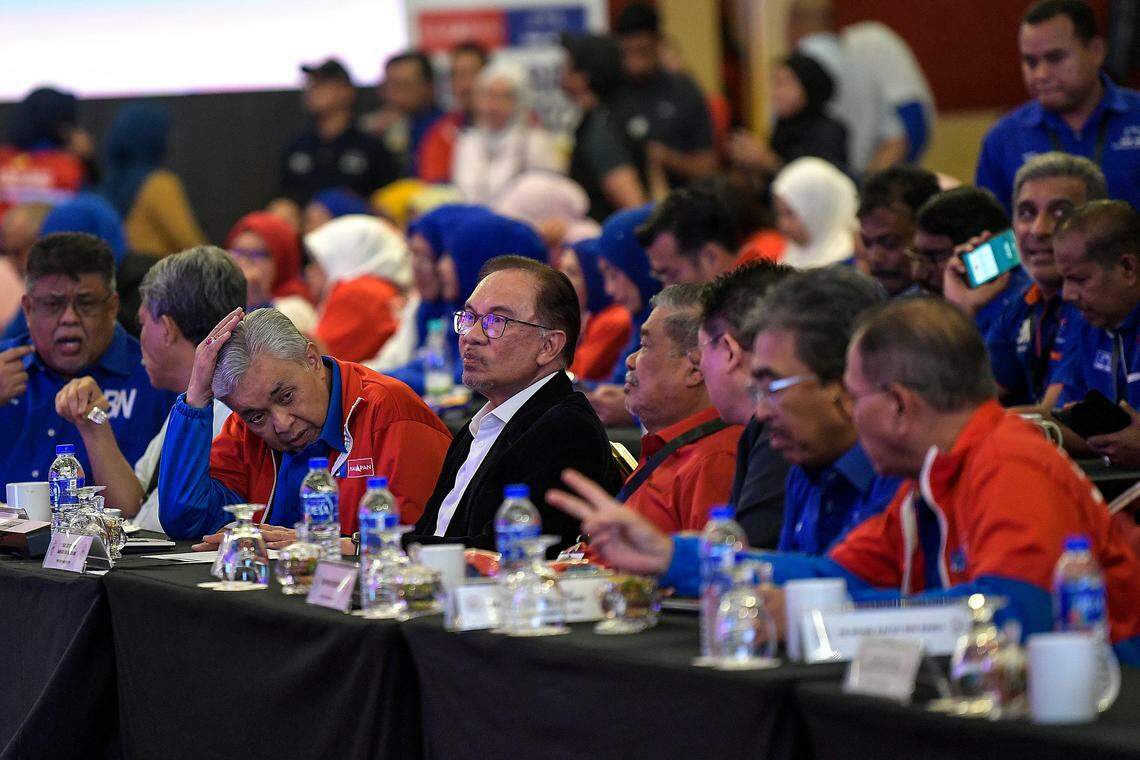
In the West Malaysia Peninsula, there are 117 constituencies of Malay voters, and there are about 48 non -Malays.If the Pakatan Harapan can effectively coordinate the cooperation with UMNO, it will be expected to restart the Malay seats of some rural areas and avoid Umno's votes from further flowing to the National League.
Harchinsen also proposed that the Pakatan Harapan must expand its connection with UMNO, rather than focusing on the key to the UMNO Chairman Ahmad Zahi."Although Ahmad Zahi has a strong influence in the party, there are other people in UMNO. Anwar and Pakatan Harapan can consider expanding the network in UMNO and referring to the results of the six states.Make a substantial cooperation to strengthen the voting transfer between each other. "
The addition of third political forces can avoid ethnic differentiation
In order to avoid further deterioration of Malaysian ethnic relationships after the election, scholars suggest that unity of the government to guide public opinion to cross racial and religious macro issues, and promote cross -ethnic dialogue to pull Malaysian politics back to the middle route.
When discussing issues in Malaysia, the Malaysian society often unconsciously starts from the perspective of race and religion, and it is difficult for public opinion to get rid of the division.However, there are actually many macro issues worthy of attention, including the global economic transformation, global warming, etc. driven by competition between China and the United States, the global transformation driven by artificial intelligence, etc., and promoting the consciousness in this area believes that it can help the public to escape the race and religious discussions.
Huang Jinfa also believes that various political parties have responsible education supporters and encourage cross -ethnic groups to communicate and understand.Taking the Democratic Party as an example, to promote the multi -ethnic route, the DPP must cultivate the emphasis on Chinese voters and help voters understand the overall situation, otherwise supporters may give up voting.
He also suggested that Malaysia's introduction of proposition of proportion of the Malaysians, allowing political parties with the main axis of the subject of youth, social class, and environmental protection to stand out and get rid of racial political situation.
Because the Malaysia country pursues the "simple major system" (FIRST PAST The Post ", in this election, small political parties such as Malaysia United DemocratAll the entire army was covered.
In this regard, Azmir said that although the election system is not good for the small party, the Mada and the Socialist Party actually played the role of supervising large parties during the campaign and paying attention to the topics of mainstream political parties.He believes that Mada will be able to grasp the advantage of the Malaysian country to reduce the age of voting to 18 years and strive for the support of young people.

